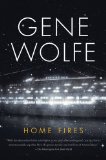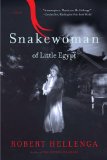Summary | Excerpt | Reading Guide | Reviews | Beyond the book | Read-Alikes | Genres & Themes | Author Bio

A Novel
by Paul Austeraul Auster is one of those writers who is always multitasking. His stories are never about just one thing, and you can never be sure what's going on behind the scenes until you turn the last page. This is why I hate him, not to mention envy him. And also why I love him.
Sunset Park appears at first to be the ordinary story of a young man, Miles Heller, who is working a dead-end job and trying to find some meaning in his life. But as we explore his history, his current living arrangements, and the people in his life, we start to see that we are really exploring the idea of growing up and what it means to live in the world. All of this, of course, is buried in the conversations and obsessions of Miles and his parents and friends.
Auster is a master of the perfect metaphor. Miles is in Florida when the book begins (though most of the book takes place in New York City), and he talks of the sun there as being a light that "does not illuminate things but obscures them… It is all glitter and dazzle, but it offers no substance, no tranquility, no respite." This certainly sounds like many other descriptions of modern life: information is really just noise, and the constant barrage makes it impossible to make sense of any of it. But in the next sentence, Miles introduces us to the (of course inappropriate) love of his life - whom he found under that harsh light. The quality of the light does not change the substance that exists beneath it, and the life you live is not determined by the state of your surroundings. This unexpected turn is vintage Auster and part of the joy of reading him. His writing is regularly frustrating but often beautiful.
Auster is not trying to say that contemporary life is suddenly different. In fact, by tying this story - which is firmly rooted to the year 2008 - to a film made in 1946, The Best Years of Our Lives, he's trying to show us that we've been dealing with the same issues at least since WWII. Each generation since then has been battered by horrific wars - whether global or personal - and it is these wounds that make us adults. Those who wish to call this a post-9/11 novel, or a story of the recession, can do so if they wish, but it seems to me that Auster's focus on the heavy toll these events take on the human psyche emphasizes that only the political and economic particulars have changed. The young leave their optimistic hopefulness behind because of the wounds of childhood, and the older generation is battered by decades of wounds that can drain what little strength they have left.
All that being said, this is not a depressing book. It is a novel about knowing what matters, to you and to those around you. And although the ending is startling, it really shouldn't have been a surprise. The point here, as with every Auster novel I've read, is that the story of our lives is not the same thing as life itself. The story is just how we make sense of it all.
Additional Info
Watch the video clip below to hear Paul Auster read from Sunset Park:
![]() This review was originally published in The BookBrowse Review in November 2010, and has been updated for the
November 2011 edition.
Click here to go to this issue.
This review was originally published in The BookBrowse Review in November 2010, and has been updated for the
November 2011 edition.
Click here to go to this issue.

If you liked Sunset Park, try these:

by Gene Wolfe
Published 2012
Gene Wolfe takes us to a future North America at once familiar and utterly strange.

by Robert Hellenga
Published 2011
A novel packed with wit, substance, and emotional depth, Snakewoman of Little Egypt delivers Robert Hellenga at the top of his form.
The worst thing about reading new books...
Click Here to find out who said this, as well as discovering other famous literary quotes!
Your guide toexceptional books
BookBrowse seeks out and recommends the best in contemporary fiction and nonfiction—books that not only engage and entertain but also deepen our understanding of ourselves and the world around us.